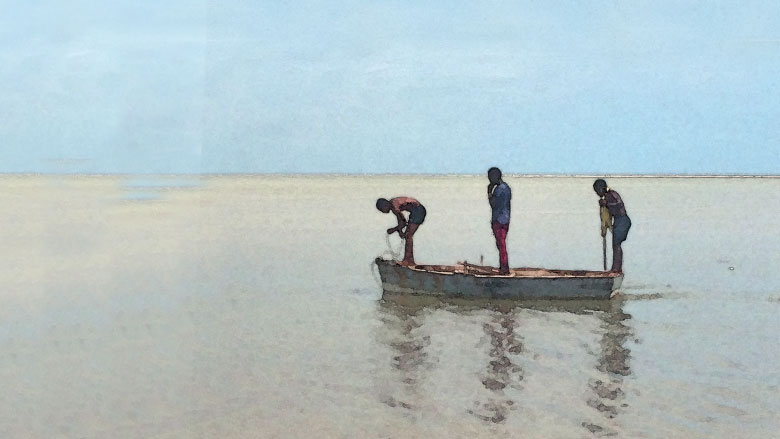WASHINGTON, April 26, 2019 – Maria Teresa and Abdala Haje, both women farmers, have struggled in the past to produce enough quality products to sell. When they do have products for sale, limited infrastructure makes transport challenging and costly. Such barriers significantly limit profits and spurs destructive farming techniques that yield short-term products but ultimately degrade the land.
Through the Mozambique Integrated Landscape Management Portfolio (ILM), Teresa and Haje are now receiving agricultural training and access to resources, to purchase items such as higher quality seeds and tractors. This helps them raise their profits and invest into the long-term sustainability of their businesses, and the land. They say they have benefited from more than just the resources, but also trainings and networking opportunities that have allowed them to share knowledge and collaborate with other small-holder farmers in their regions.
“When we work together, we can help one another, and our communities will grow and thrive,” said Abdala, one of many beneficiaries highlighted in a new publication, Voices from the Field.
In 2018, Teresa made connections with more than 40 other local farmers through ILM, a quarter of whom were women—to encourage collaboration and knowledge sharing. “Working with women as well as men is very important” she says, “it the women who ensure there is food for the family, food for the market and profit so that the children can go to school.”
People are front and center of all activities
One of the poorest countries in the world, Mozambique is experiencing rapid population growth, large-scale extraction of natural resources such as timber, and a wildlife poaching crisis. The country is also internationally renowned for its breathtaking landscapes, biodiversity and coastal ecosystems. Natural resources not only generate economic benefits to local communities, but also provide income to the government and contribute to climate resilience.
Through ILM, the World Bank is supporting the Government of Mozambique, local communities, private sector and civil society partners, to develop a series of projects and programs focused on reducing environmental threats and promoting sustainable rural development. These include the Agriculture and Natural Resources Landscape (Sustenta) project, the Conservation Areas for Biodiversity and Development (MozBio) project, the Mozambique Forest Investment (MozFIP) project and the Dedicated Grant Mechanism for Local Communities (MozDGM) project.
By managing these projects collectively, the government is implementing a unique ILM portfolio of technical assistance, on-the-ground investments, results-based finance, and analytical work. ILM’s core mission is to enhance the living conditions of more than 315,000 people through sustainable use of natural resources.
Mozambique’s ILM portfolio employs the community-based natural resource management model, meaning that local communities are directly involved in managing their own natural resources. The World Bank is providing support to the government to build capacity for a sustainable and effective institutional structure to support this model in the country. Part of this work includes strengthening local governance and establishing a national network to help monitor performance and link communities to the private sector for development of income generation activities.
Securing land rights and growing income
In Mozambique, particularly in rural areas where communities rely on various income streams, access financing is critical to improve livelihoods. In some circumstances, a family must maintain multiple small-scale businesses to meet basic needs. This is the case with Ricardo Capula, who resides in Zambézia, and works as a farmer, fish farmer, and trader at different points throughout the year.
Agriculture has traditionally been Capula’s primary source of income, but it was not enough to sustain his family. Because he did not have official land tenure, this hindered his ability to obtain a loan to expand his fish farming business and diversify his income. Working with the Government and local officials, ILM is assisting farmers like Ricardo in securing formal rights for the land they farm.
Land rights allows individuals who work the land to reap the benefits they sow, helping them obtain business loans and increasing their income. It also instills a sense of personal investment, encouraging more sustainable land practices.
“The ILM Portfolio activities show how biodiversity can be maintained and climate-resilience can be achieved through involvement and empowerment of local communities and collaboration with authorities at all levels to implement a shared vision of sustainable landscape management,” said André Aquino, World Bank Senior Natural Resources Management Specialist. “Mozambique’s leadership and strong commitment to conservation, enabled by the World Bank and partners, have not only led to jobs and policy reforms, but have sent a strong message to the world; conservation combined with full community participation is fundamental to poverty alleviation.”
